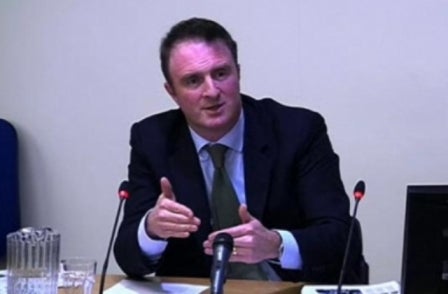
Reading between the lines of James Harding’s statement it is not hard to see that he has been squeezed out of his job as Times editor.
Under the terms of Rupert Murdoch’s purchase of The Times in 1981, he is not technically allowed to sack the editor.
However, as Harding said: “It has been made to me that New Corporation would like to appoint a new editor” – so he has agreed a deal to go.
Harding inherited a paper from Robert Thomson in December 2007 that was settling in to its tabloid skin, after making the switch from broadsheet three years earlier.
Since then Harding has won plaudits for giving The Times a new campaigning voice.
In 2009 he picked up newspaper of the year at the last British Press Awards organised by Press Gazette.
The judges said he had “miraculously transformed the title” with a redesign and that he had “raised the depth and quality of its reporting”.
The successful campaign to open secret family courts in 2008/2009 was typical of the sort of campaigning journalism championed by The Times under Harding, highlighting the plight of families who are voiceless and powerless when children are taken away by the authorities.
Earlier this month, The Times won investigation of the year for a series of articles revealing the tax avoidance schemes used by celebrities at the British Journalism Awards. It was also nominated for Andrew Norfolk’s work exposing the scandal of child sex grooming, and for the Cities Fit for Cycling campaign.
But despite the many plaudits, ultimately, editors are judged on circulation.
When he took over The Times was selling an average of 615,00 copies a day (with 47,000 bulks). Last month the print edition sold 399,321 (with 17,018 bulks).
The jury is still out on whether the biggest commercial challenge of his editorship – making the online paywall work – has been a success. It has attracted somewhere well in excess of 100,000 paying subscribers but at some cost in terms of marketing.
The biggest blip on Harding’s record is the Nightjack affair, which was laid bare during some excruciating questioning at the Leveson inquiry in March.
During that questioning we found out that a Times reporter had apparently hacked into an email account to reveal the identity of an anonymous police blogger and that the paper had not revealed this when defending a High Court injunction brought by the man.
Harding said he did not know about the matter until after the court decision had been reached – but he took the decision to press ahead with publication anyway.
At one point he said: “I have to own up to my responsibility and my failure here. As I said in the statement I can see now we paid insufficient attention to this at the time.
“The whole story is about information that didn't get passed through…
“When you look back at all of this, sir – I really hope you understand – it's terrible. I really hope you appreciate that. I know that as keenly as you do.”
In October The Times paid Nightjack – aka Richard Horton – £42,500 in damages.
Another blot on his copybook was MPs' expenses. The source who sold the information to the Telegraph in 2009 initially offered the hard drive containing details of MPs' expenses claims to The Times only for the paper to turn the story down.
As yet we don’t know whether Nightjack or falling circulation ultimately cost Harding his job. Or perhaps he had signalled his resistance to the tough cost-cutting which is likely to lie ahead if Rupert Murdoch is to fulfil his stated aim of making The Times profitable in its own right.
On 27 November, days ahead of the publication of the Leveson report, Harding struck out on his own in a comment piece which said it was time to “scrap self regulation” of the press in favour of an independent press regulation system overseen the Lord Chief Justice.
Up until then the national editors had held firmly together broadly supporting the Hunt-Black press regulation plan put forward by owners.
It appeared to be another principled stance from a journalist who will be remembered as a Times editor who completed the transformation of the title into being so much more than the 'paper of record'.
Email pged@pressgazette.co.uk to point out mistakes, provide story tips or send in a letter for publication on our "Letters Page" blog






